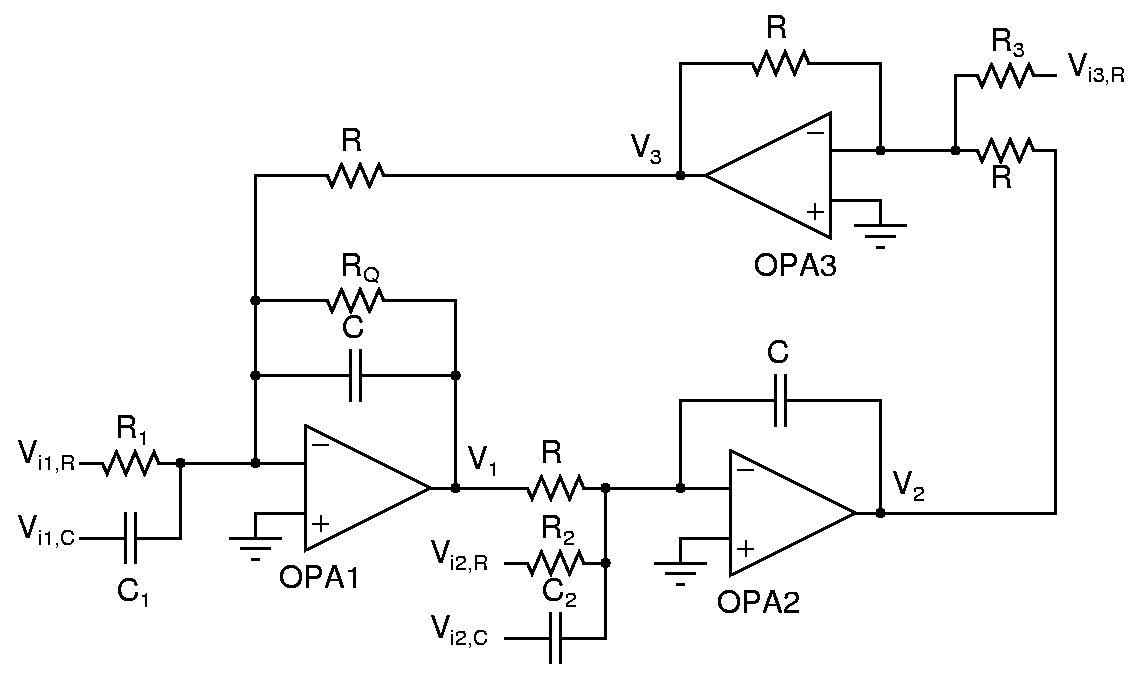Active RC universal filter
- Goals:
- Understand the operation of an active RC (i.e. opamp-RC) filter
- Use LF347 quad opamp for this experiment
- The circuit below can have inputs Vi1,R, Vi1,C, Vi2,R, Vi2,C, Vi3,R and output V1, V2, V3. Determine the transfer functions for all input-output combinations.
- Which components do the resonance frequency and the quality factor depend on?
- Which components do the zeros depend on?
- Design a bandpass filter (with V1 as output) for a resonance frequency of 10kHz and a quality factor of 10. Where will you apply the input? (Omit all unnecessary components from the circuit) Verify its operation.
- While keeping the circuit the same, can you take the output from a different point to realize a lowpass filter? Verify it.
- What are the minimum modifications required to get a notch filter output at V1? Verify it.
- Make the minimum modifications required to obtain a maximally flat lowpass response and verify it. A maximally flat all pole lowpass response has only the highest power of ω in the denominator of |H(jω)|2.
- Modify the above circuit to get a highpass filter output at V1? Verify it.
- Restore the circuit to the bandpass filter in the first part. Replace the opamp LF347 with LM324 which has an identical pin configuration(hopefully you don't have a mess of wires running over the chip!) What do you see? Why?
- Applications: Active RC filters are the most popular topologies of RC filters. For example, they are used as intermediate frequency filters in radio receivers(=radios, mobile phones, GPS, …). At very high frequencies, active RC filters cannot be realized because of difficulties in realizing stable feedback loops with high gains, and gm-C filters are used instead.
